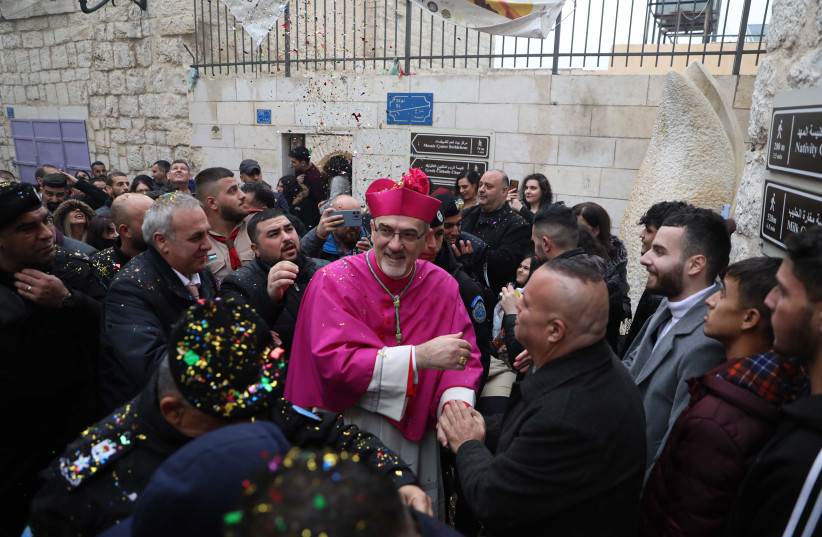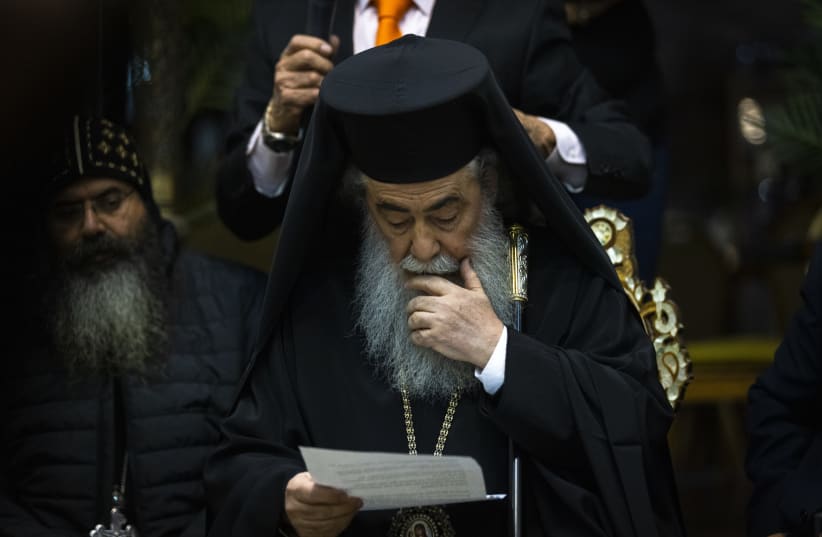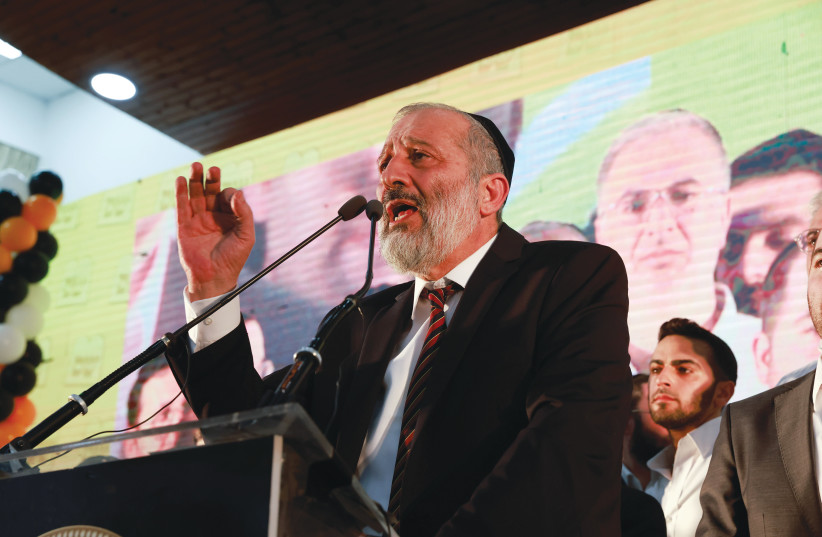There is a deepening hopelessness, especially among the youth in Christian communities in the Holy Land, Greek Orthodox Patriarch Theophilos III said on Thursday at the annual reception hosted by President Isaac Herzog for spiritual and lay leaders of Christian communities in the Holy land.
Clad in black, brown, white and purple cassocks spiritual leaders of the Eastern and Latin Churches together with religious and lay leaders of the Protestant Churches and communities in Israel filled the main hall of the President's Residence.
Representatives of the Muslim, Druze and Baha'i communities were also present as were nuns in different colored habits, and mayors of communities in the Galilee.
They spoke a babble of languages amongst themselves - including Hebrew and Arabic.
Hope and despair

"Our young people do not see a future of hope, but only a future of increasing despair, lack of opportunity, and the elusiveness of peace," said Theophilos.
This is a matter of urgent concern to the Churches, he continued, "and we hope that it might also be a matter of urgent concern to the governing authorities of our region. When people are robbed of hope, especially young people, there is not only the consequence of despair; there is also the prospect of uncertainty."
On a more positive note, Theophilos commended President Herzog for his personal concern for the well-being of all the people in the region, which he said was "well-known and acknowledged." At the same time, the leaders of the Churches want Herzog to use his ongoing influence to ensure that their historic privileges and rights are upheld, including their properties which, Theophilos said, "are part and parcel of the sacred common geography of the three religious traditions of the Holy Land and are currently threatened by certain groups, which the Patriarch chose not to name.
One of the optimistic remarks in his address was that Christian pilgrims have returned to Israel in large numbers in the aftermath of the pandemic.
President Herzog and Theophilos each emphasized the importance of coexistence, mutual respect and dignity as qualities integral to making peace. Both also spoke of hope, with Herzog commenting that it was not surprising that Jews and Christians celebrate festivals of light, faith and hope in the dark of winter.
He offered a prayer for Christians throughout the region, saying that they deserve to prosper and flourish and to practice their faith freely.
He also declared that there was "zero tolerance" for any form of violence or attack against any Christian community, and called for connections through dialogue rather than reasons for hatred and conflict.
In this context, he mentioned the Abraham Accords which he said are not only a matter of shared interests but of shared faith in God.
In a message that he said he was sending across the whole region,
Herzog urged that nations and communities stand together in partnership against the forces of extremism and hate.
Aryeh Deri's appearance and statements
MK Aryeh Deri, the Interior Minister and Health Minister who arrived almost at the conclusion of the event, said that he had come straight from the swearing-in ceremony for the new government. He pledged that the government would work on behalf of all the residents of Israel without discrimination, regardless of race, religion or gender.
"At a time when there are so many disputes amongst us, let us remember we overcome challenges only when we work together," he said, adding that Israel's hands are always stretched out in peace.
Aware of claims of inequality by members of Arab communities, Deri promised to give them equal services and equal budgets in relation to the size of their communities.
He recalled that as a young man he had been director general of the Ministry for the Interior during the period in which the president's father Chaim Herzog had been president. The senior Herzog had been greatly concerned about the Arab communities and regularly raised the matter with Deri. "I did my internship on Arab communities with him," quipped Deri.
In his closing remarks, he urged the Christian community to speak out against racism and all forms of antisemitism.

